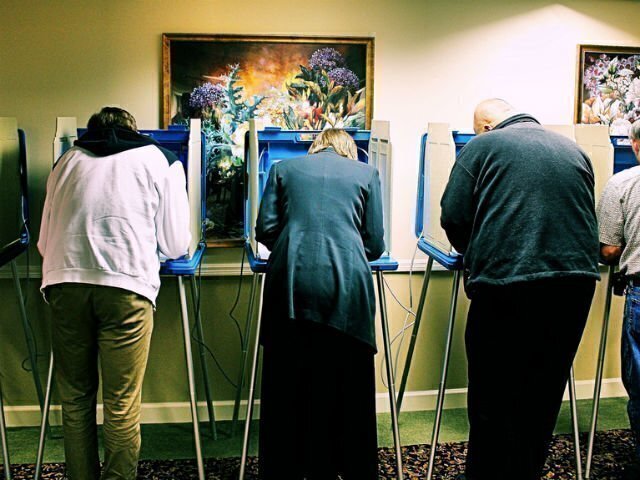
This commentary is part of a blog symposium honoring the 50th anniversary of the Voting Rights Act. Other contributions come from Rick Hasen, Kermit Roosevelt, J. Christian Adams and Brianne Gorod.
The Voting Rights Act was passed on August 6, 1965, because of the appalling denial to African Americans of the right to vote in, especially, the Deep South. There was and is an overwhelming national consensus that such discrimination is wrong, and this consensus was and is bipartisan. Indeed, it’s interesting that Republicans voted in favor of the 1965 act more solidly in both houses of Congress than did the Democrats. The act has transformed the American political landscape, and has been remarkably effective in halting racial discrimination in voting.
Some problems with the act have emerged over time, to be sure, largely as a result of bureaucratic overreaching. Whenever efforts are made to address those excesses, the Left likes to assert that the basic principle of nondiscrimination is being challenged, but this is not true.
Subsequent disputes over the act have involved only two things: the use of the “disparate impact” approach to its enforcement (that is, using the act to challenge racial disproportions of one kind or another even if those disproportions are not the result of actual discrimination); and whether there is any longer any justification for Section 5 of the act (involving “preclearance” of state and local voting changes by the federal government). The Left favors the two because they provide an easy way to promote the racial gerrymandering it likes and to block the election integrity measures (like voter ID) it doesn’t. But the race-based decision-making encouraged by “disparate impact” claims is bad for any number of reasons, and the Supreme Court was quite right to rule two years ago that, indeed, the preclearance formula of Section 5 can no longer be justified.
The racial gerrymandering and segregation fostered by the “disparate impact” approach is pernicious. The Supreme Court has warned about the unconstitutionality of racial gerrymandering in a number of decisions; the practice encourages racial balkanization and identity politics; and, in addition, the segregated districts that gerrymandering creates have contributed to a lack of competitiveness in elections, districts that are more polarized (both racially and ideologically), the insulation of Republican candidates and incumbents from minority voters and issues of particular interest to minority communities (to the detriment of both Republicans and minorities), and, conversely, the insulation of minority candidates and incumbents from white voters (making it harder for those politicians to run for statewide or other larger-jurisdiction positions). As Chief Justice Roberts wrote, it is, indeed, “a sordid business, this divvying us up by race.”
There are efforts in Congress now to resurrect Section 5 after the Supreme Court essentially struck it down two years ago, but such legislation in unnecessary and unwise.
The fact is that Section 5 was an extraordinary provision. It said that nine entire states and parts of seven others could not make any change—no matter how small—in any voting practice or procedure without getting advance permission from the federal government. And it basically put the burden of proof on a state or local government to establish its innocence—not only of disparate treatment, but also of anything with a disproportionate racial impact.
Now, this was a good idea in 1965, although even Chief Justice Earl Warren twice called the provision “stringent” in upholding it. At that time, whole swaths of the country were systematically and blatantly denying people the right to vote because of race. But now there are no large sections of the country like 1965 Mississippi. I very much doubt, in fact, that there is any single state or local jurisdiction that is like 1965 Mississippi.
But what if there were? Well, then you have Section 3 of the act, which allows a judge to put a jurisdiction that denies or restricts voting rights into this kind of “preclearance” receivership. It’s been done. For other instances of racial discrimination, you have Section 2 of the act, which applies to the whole country. Remember that the only provision the Court struck down was the coverage formula for Section 5; the rest of the act is untouched.
Indeed, these other provisions are now being used, aggressively, by the Obama administration and liberal civil-rights groups, and there is no evidence that they need more weapons in their arsenals. If they can prove their cases in court, they will win—the way it works with every other civil-rights law—but with Section 5 they have gotten used to winning without having to prove anything, and that’s the only reason for the efforts to bring back Section 5.
In particular, reasonable people can differ about how to strike the balance between ensuring that eligible voters are able to vote and ensuring that ineligible voters do not. If those efforts are motivated by race, they should be struck down—but by producing evidence of that discrimination in court, not at the whim of some bureaucrat.
We don’t need Section 5 anymore. If it weren’t for the fact that, once upon a time, we did have states that made Section 5 necessary, and that over the years this unique provision has made life much easier for some lawyers, does anyone really believe that a provision like Section 5 would, in 2015, be drafted and given serious consideration? Of course not.
Roger Clegg is president and general counsel of the Center for Equal Opportunity.
Editor's note: Commentaries appearing on Constitution Daily reflect the opinions of their authors, and not those of the National Constitution Center.







